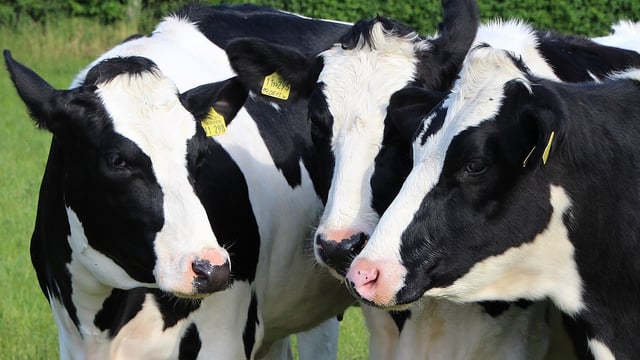Letter to the editor: Veterinary medicines system needs fairness
In the ever-evolving landscape of agriculture and animal husbandry, the recent moves by Veterinary Ireland to address changes in the rules for medicines have sparked a heated debate.
While Veterinary Ireland claims that the new regulations will lead to job losses and compromise the quality of veterinary services, the reality is far more complex and troubling.
The current approach not only stifles fair competition for farmers but also perpetuates a profit-driven model that undermines the core mission of veterinary care.
One of the most glaring issues with Veterinary Ireland's stance is the lack of fair competition in the supply of animal medicines.
Farmers are currently at the mercy of veterinary practices that often mark up the prices of medicines by as much as 30%. This exorbitant margin is not justifiable, especially when considering the financial strain already faced by farmers.
The proposed changes to the Veterinary Medicinal Products, Medicated Feed, and Fertilisers Regulation Bill 2023 aim to introduce alternative routes of supply, such as licensed merchants and co-ops.
This would provide farmers with more options and potentially lower costs, fostering a more competitive and fair marketplace.
Veterinary Ireland's argument that the new regulations will lead to job losses, particularly in farm animal practices, is a red herring.
The real issue is the chronic shortage of vets willing to work with large animals, especially in rural areas. Despite an increasing number of veterinary graduates, many are opting for small animal practices, leaving a significant gap in farm animal care.
This shortage is not a result of regulatory changes but rather a systemic issue that Veterinary Ireland has failed to address adequately.
Instead of focusing on maintaining a monopoly over the supply of medicines, Veterinary Ireland should be investing in incentives and support systems to attract more vets to farm animal practice.
The corporatisation of veterinary practices is another alarming trend that Veterinary Ireland seems to overlook. As corporate entities take over more veterinary practices, the focus shifts from providing essential services to maximising profits.
This shift is detrimental to both animal health and farmer welfare. The new regulations, which allow for prescription-exempt vaccines to be supplied through retail premises, could serve as a counterbalance to this profit-driven model.
By decentralising the supply of certain medicines, the regulations could ensure that animal health is prioritised over corporate profits.
Veterinary Ireland's concern about the increased administrative burden due to the National Veterinary Prescription System (NVPS) is another point of contention.
While it is true that the NVPS will require more record-keeping, this is a necessary step to ensure transparency and accountability in the use of medicines.
The EU mandates to record medicines and antibiotic use are in place to combat issues like antibiotic resistance, which poses a significant threat to both animal and human health.
Instead of resisting these changes, Veterinary Ireland should be working on streamlining administrative processes to make compliance easier for vets.
The concerns raised by Veterinary Ireland about the new regulations are not entirely unfounded, but they miss the bigger picture.
The current system is skewed heavily in favour of veterinary practices, leaving farmers with limited options and high costs. The shortage of large animal vets and the corporatisation of veterinary services further exacerbate the problem.
The proposed changes to the Veterinary Medicinal Products, Medicated Feed, and Fertilisers Regulation Bill 2023 offer a chance to level the playing field and ensure that animal health is not compromised by profit motives.
It is high time for Veterinary Ireland to shift its focus from protecting its own interests to addressing the real issues facing the agricultural community.
By embracing fair competition, supporting farm animal vets, and prioritising animal health over profits, we can create a more equitable and effective veterinary care system for all.
From Daniel Long, Co. Tipperary.





